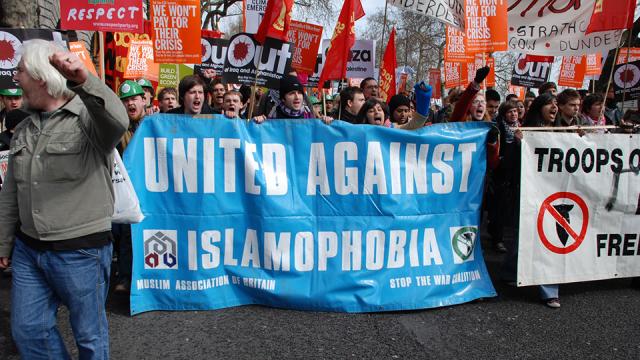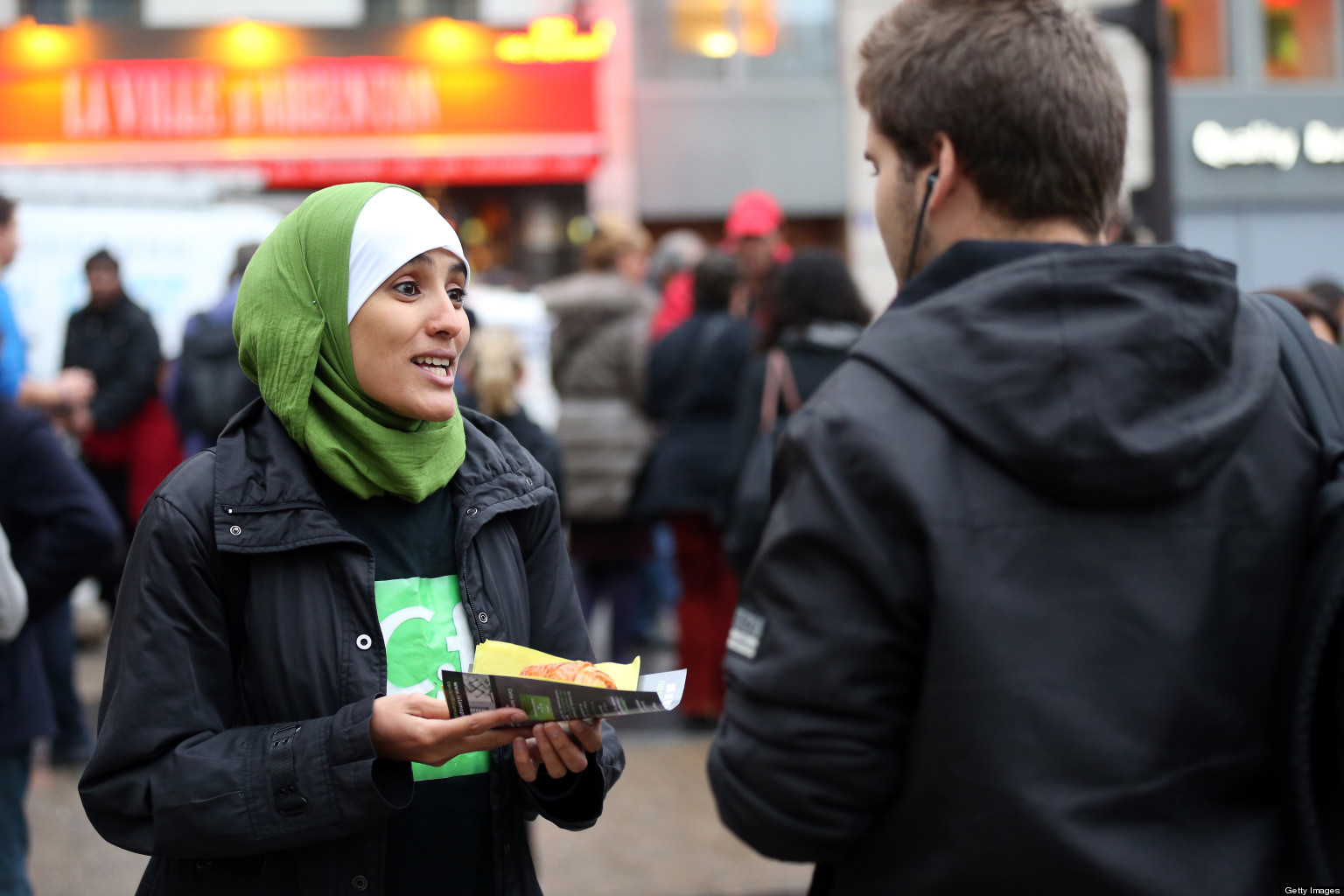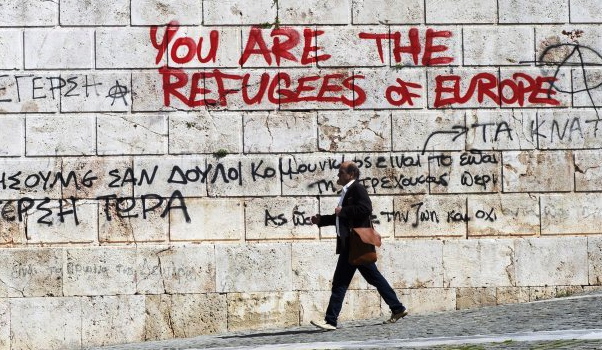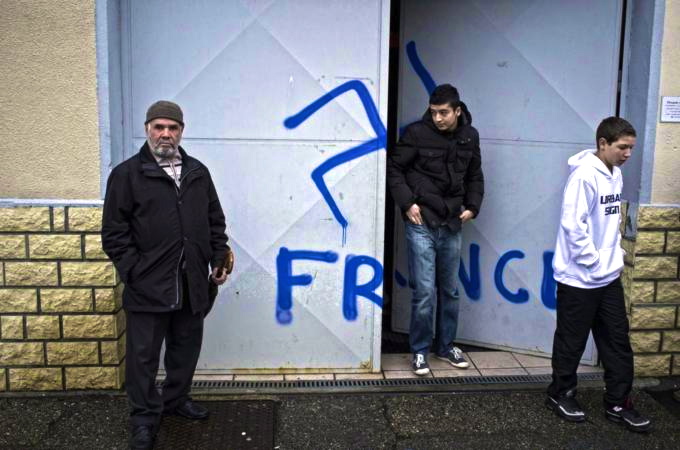
At times, it seems as if the events of the last few years are following a well-worn script: a financial crash, followed by recession, which leads to the re-emergence of old hatreds. In certain crisis-hit countries (Greece, Hungary), the downturn appears to be leading directly to the return of fascism. Elsewhere (France, Holland, Britain, Sweden, Finland and beyond), other kinds of far-right parties command sizable votes at election time or have been able to push their agenda via the national media.
Their rhetoric, emphasis, and underlying beliefs may differ, but certain key features are the same: they claim to be sticking up for a “native” population betrayed by the political elite; they want to drastically restrict the rights of immigrants; they want to reverse the supposed incursion of a “foreign” culture into the homeland.
Yet to see all this as a simple function of economic crisis obscures what has actually been happening in Europe since well before the 2008 crash. Below are four long-term trends that have enabled a more profound drift to the right. (For these categories, I am indebted to a speech by Kevin Ovenden at this year’s Unite Against Fascism conference in London.)
Islamophobia and its Cousins
It’s not as if racism has ever disappeared, but under the guise of “criticism” of the religious and cultural practices of Muslims, it has found a new emphasis. This was already brewing before 9/11, but the War on Terror gave weight to the claim that “the West” was locked in a civilizational conflict with Islam.
What marks Islamophobia out as something new is the way in which its adherents use the norms of liberal democracy – free speech, LGBT rights, even at times a rhetorical commitment to “diversity” – as a stick with which to beat Muslims. Such ideas come from the mainstream (witness how the manifesto of the Norwegian far-right killer Anders Behring Breivik quoted liberally from the likes of the Daily Mail columnist Melanie Phillips), but various far-right groups have taken them to an extreme. Britain has seen the emergence and initial rapid rise of the English Defence League street movement, which others in Europe have attempted to imitate.
Yet it would be a mistake to think “cultural” racism stops at Islam. Anti-Semitic incidents were up 30% in 2012, according to one recent study, while ethnic Roma are the target of profound discrimination in eastern and central Europe; and when they flee west they are accused of crime or benefit scrounging.
The Persistence of Nationalism
As the Eurozone crisis makes clear, nationalism did not disappear with a wave of the E.U. magic wand. Whatever their underlying aims, far-right and right-wing populist parties have prospered by advocating some form of national preference. Some, like the U.K. Independence Party, make this an explicit attack on the E.U. itself; all see immigration and ethnic diversity as some kind of threat to national cohesion.
Paradoxically, it may well be the march of globalization that has intensified such feelings: capital does not respect national borders; people are forced to move in order to find work; “native” populations are drawn to blame new arrivals for their own identity crises. It’s not simply a question of competition over jobs or scarce resources: economic and cultural insecurities play off one another.
Against this background, political leaders have joined in an assault on “multiculturalism”: The U.K.’s David Cameron, Germany’s Angela Merkel and France’s Nicolas Sarkozy have all made major speeches in which they proclaimed the failure of this doctrine.
Anti-immigrant Policy
Together, the 27 states that make up the E.U. (soon to be 28, when Croatia joins in July) have the world’s largest GDP. Together, they constitute a major player in a world economic system where inequality is rampant and people must travel vast distances in order to secure a living. What’s more, those E.U. countries that are NATO members fight wars which produce vast numbers of refugees. Europe, prosperous and peaceful in relation to large parts of the world, is and always has been a destination for migrants.
In the past two decades, amid various other anxieties about immigration, a powerful and poisonous stereotype has arisen: the “illegal” immigrant. As hostility to migrants has risen, openly encouraged by media outlets and far-right demagogues, panicking governments have reacted by introducing increasingly tougher controls, aiming for a coordinated borders policy nicknamed “Fortress Europe”.
Migrants find themselves trapped in a nightmare, whether in Greece, where the collapse of the asylum system has left thousands destitute and the target of neo-Nazi violence, or in Britain, where a restrictive and often brutal system of detention imprisons more migrants per year than any other country but Australia.
The Death of the Political Center
Governments of both center-left and center-right have bought into the neoliberal economic consensus – a move summed up by Margaret Thatcher as “there is no alternative.” From the late 1970s onwards, we have seen disillusionment with conventional politics. The situation differs from country to country, but the hollowing-out of the mainstream leaves a void that far-right parties have been eager to exploit.
The austerity consensus that has seen governments from London to Lisbon enforce cuts with varying degrees of coercion, has further discredited political elites. In 2008, many predicted this would lead to a resurgence of the traditional left. So far, it hasn’t. Instead, discontent has emerged in several other ways.
Most alarming, is that in certain cases it has enabled fascism to emerge from its hiding place and re-enter the political mainstream. Before now, fascists who wanted to win votes have had to clothe themselves in “respectable” language and imagery, hiding their innermost beliefs. With the success of Hungary’s Jobbik and Greece’s Golden Dawn, both openly neo-Nazi, that may no longer be the case.
Elsewhere, the “respectable” fascists (like France’s Front Nationale) and other racist populists (like UKIP), have continued to prosper. They have been joined by newer formations like Beppe Grillo’s “anti-politics” 5 Star Movement in Italy, which is not explicitly right-wing but remains ambiguous.
As for left-wing discontent, its expression has largely been in our streets and city squares. The methods of organization, and the rejection of neoliberal dogma are an inspiration, but progress has been slow, fitful and fragmentary. It is crucial that these movements find a way to break through, but as much as we need economic alternatives, we also need to confront the racism and xenophobia prevalent across Europe, and to neutralize its political expression in the form of the far-right.
If we don’t, then the future risks being one of technocratic governments imposing yet more austerity, dismantling the freedoms of immigrants, minorities and political dissenters, with their rhetoric drifting further rightwards still as populists and fascists snap at their heels.
Follow the author at @trillingual.
Originally published by Occupied Times of London.
3 WAYS TO SHOW YOUR SUPPORT
- Log in to post comments



















